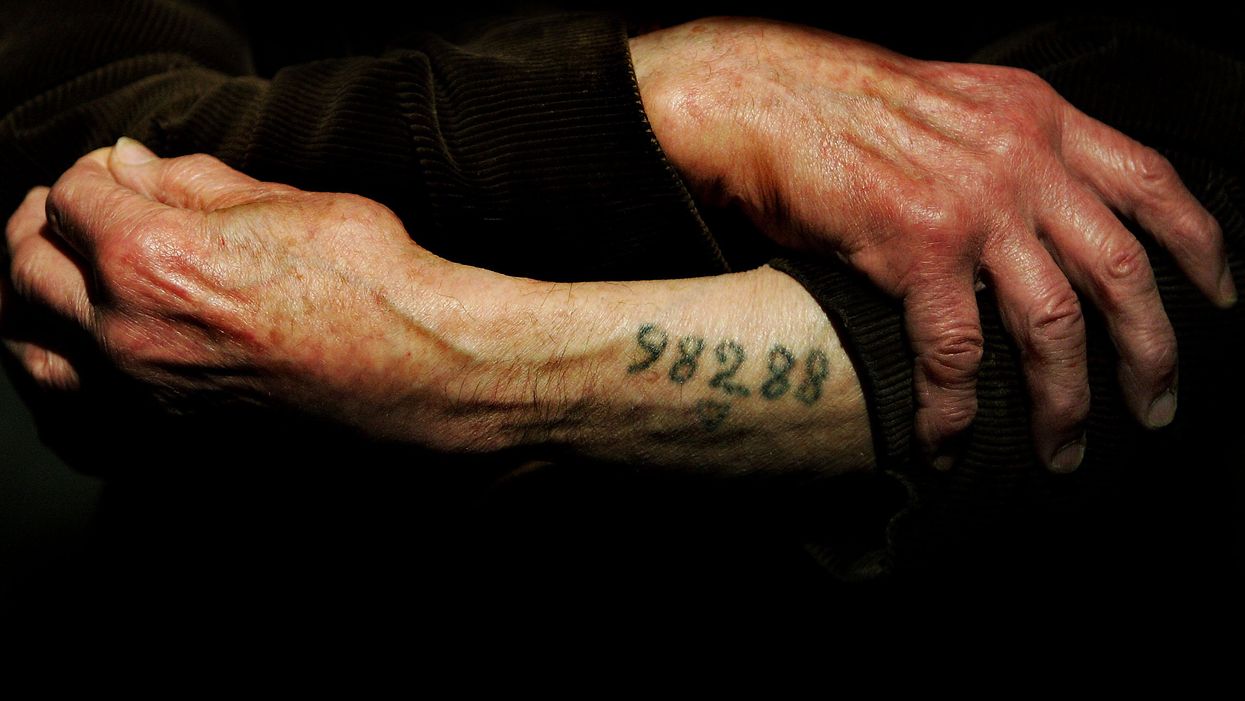
Photo by Ian Waldie/Getty Images

Strong words
Toby Levy, a retired accountant, has gone viral for her story of surviving both the Holocaust and the COVID-19 pandemic.
Levy, an 87-year-old New York resident who is also a volunteer docent for the Museum of Jewish Heritage, explained that the Holocaust stole her youth — and now the coronavirus pandemic is stealing her final years.
In a Monday op-ed published in the New York Times, Levy explained that she was relatively active for an 87-year-old woman in New York.
"These days, I'm a little bored," Levy writes. "The boardwalk is my lifesaver. I'm two blocks from the boardwalk. I can walk to Coney Island if I want to. I go alone. I have some friends here. We used to play canasta once a week. But when Covid arrived, my daughter insisted, 'You can't sit in one room!' So I talk on the phone. I read. The grandkids call in by Zoom. I also do a little bit of Zoom lecturing for the Museum of Jewish Heritage."
In the op-ed, Levy says that she's busy keeping herself busy these days, and is "trying not to give up." It's becoming harder and harder, however, because she has faced the fact that she has essentially lost a year of her life.
"[T]his bothers me terribly," Levy admits. "I'm 87 years old, and I lost almost a full year."
Levy continues, pointing out just how much time she lost as a child in Chodorow, Poland (which is now Khodoriv, Ukraine) amid the height of the Holocaust. She recalled her family going into hiding and relocations to avoid being picked up by Nazis.
"[M]y father built a place to hide in the cellar," Levy recalls. "My grandfather didn't want to go. He was shot in the kitchen; we heard it."
Levy says that she and her family later spent time with a family friend who housed them in a barn on her property.
"My father built a wall inside the barn and a hiding place for nine people, where we slept like herrings," she recalls. "It was just four feet by five feet. Pigs and chickens were on one side, and we were on the other: my parents, my aunt and uncle, my maternal grandmother, and four children, ages 4, 6, 8, and 12."
Levy says that even though the family lived and slept among lice and rats, every day outside Nazi capture was a miracle.
"I'm not a regular person. I'm a miracle child. Most of the Jews of Chodorow never returned," she reveals. "So when the coronavirus came, I thought, 'I'm a miracle. I will make it. I have to make it.'"
Levy has made it this far and says that she has more hope for the future when compared to how she felt during the war.
"During the war, we didn't know if we would make a day. I didn't have any freedom. I couldn't speak loudly, I couldn't laugh, I couldn't cry," she writes. "But now, I can feel freedom. I stay by the window and look out. The first thing I do in the morning is look out and see the world. I am alive. I have food, I go out, I go for walks, I do some shopping. And I remember: No one wants to kill me. So, still, I read. I cook a little bit. I shop a little bit. I learned the computer. I do puzzles."
Levy says that despite having her life, she does still feel like she is missing out on her final years.
"A full year is gone. I lost my childhood, I never had my teenage years. And now, in my old age, this is shortening my life by a year," she continues. "I don't have that many years left. The way we have lived this year means I have lost many opportunities to lecture, to tell more people my story, to let them see me and know the Holocaust happened to a real person, who stands in front of them today. It's important."
Levy says that though she sometimes feels trapped, she hopes to outlive the pandemic and is making plans for the rest of her life.
"I understand the fear people have, and I understand you have to take care," she concludes. "But there is no comparison of anxiety, of the coronavirus, to the terror I felt when I was a child. That was a fear with no boundary. This is going to end, and I am already thinking, planning where I am going first, what I will do first, when this ends."